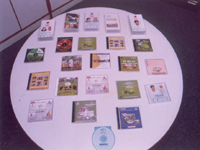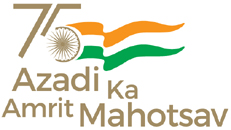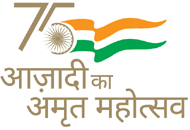



Journal of Agricultural Extension Management
Vol XVII July - December, 2016 No.2
1. Assessing Adoption of Gross Margin Analysis Technique by Farmer Business School Lead Farmers in Mzuzu and Karonga Agriculture Development Divisions of Malawi / Beatrice Mbakaya, D. Kambewa and Isaac Mambo
Abstract
Gross margin analysis technique is among the tools that farmers are taught in farmer business schools to enable them to plan for profitable enterprises. This study was aimed at assessing the adoption of this technique being promoted among lead farmers. It was observed that 60 per cent of the respondents did not prepare gross margins, indicating low adoption of this technique. Among the users of gross margin technique, this was used in selection of profitable enterprises only. Most of the respondents (60%) had an average knowledge on gross margin technique. Most respondents (82%) however indicated that it is easy to do gross margin analysis. Moreover, farmers complained that they do not sell their products at calculated sale prices. Use of gross margin technique was found to be associated with availability of farm records, extension followup visits on gross margin analysis and farmers` knowledge on gross margin analysis(p<0.05).
2. Corporate Social Responsibility for Agricultural Development - A way forward / N. Balasubramani
Abstract
A huge investment is required to address the current challenges of agriculture. These challenges provide space for a pluralistic eco-system to involve various players. The Corporate sector is one of the important players in the current policy initiative to leverage Corporate Social Responsibility (CSR) funds for agricultural development. However, a very small amount of CSR fund has been spent in the agricultural sector by the companies though there is huge potential for investment in the sector. Agriculture is yet to attract the attention of India’s CSR. Countries that had relatively high Agriculture growth, saw substantial reduction in poverty. Hence, if the Corporates allocate more fund under CSR in agriculture, many challenges of the farm sector can be addressed. Corporates who have invested in Agriculture as part of CSR activities have seen a significant improvement in terms of adoption of improved agriculture practices, conservation of natural resources, reduction in external inputs and cost of cultivation, etc., in their project areas. The emphasis of CSR in the Agriculture sector needs to be in the areas of environmental sustainability, natural resource management, innovation and technology led development, social development, entrepreneurship development, livestock development, market development, farm advisory services, etc. In order to promote CSR activities in Agriculture, it is suggested to have a Special Purpose Vehicle (SPV), steering committee having broad based representation of various stakeholders, proper monitoring system at various levels, etc.
3. A study on differential Adoption and Constraints of Dairy Farmers about Scientific Dairy Farming Practices in Amritsar district of Punjab / Sukhjinderjit Singh, Jagmohan Singh and Parvinder Singh
Abstract
In the present study, practices adopted and constraints perceived in scientific dairy farming by KVK trained dairy farmers were compared with non-trained dairy farmers. Hundred trained and hundred non-trained dairy farmers were selected by random sampling technique from the villages of Amritsar district of Punjab. The data were collected through personal interview with the help of a structured interview schedule. The trained farmers were found to have better adoption than non-trained farmers. The respondents faced more constraints in breeding, feeding and health care. Some of the major constraints mentioned by the respondents were poor conception rate, lack of knowledge of common contagious diseases, their causes and control measures and non availability of mineral mixture in the study area. The present investigation concluded that the training programme on scientific dairy farming had a positive impact on adoption of technologies by dairy farmers despite many constraints.
4. Use of Mobile Phone and its Apps in Extension Services / Pranav Kumar and Amandeep Singh
Abstract
Information and Communication Technology (ICT) and its application have shown great prospects in remodeling extension services in both developed and developing countries. The present era is an era of science and technology and those related to these fields are showing a tremendous increase in their value and functionality. Linking extension services to emerging technologies should be focused upon for better results and efficient services, due to the fact that a majority of the people are now connected to one another through mobile phones. These devices and their apps can be used for better linkages and to provide farmers with latest information instead of creating new devices for extension activities.
5. Rationality and Validity of ITKs on Plant Protection and Post-harvest Technology of Tribal Farmers in Telangana / N. Praveen and I. Sreenivasa Rao
Abstract
This study was conducted in Adilabad, Khammam and Warangal districts of Telangana. Ex post-facto research design was followed in this study, since different variables chosen for the study had already occurred. An effort was made to document the indigenous technology of tribal farmers. A questionnaire containing lists of ITKs was prepared and exposed to the scientists for judging the rationality and validity of ITKs on a three point scale wherein, 3 is rational, 2 undecided and 1 is irrational. The mean score was calculated by summing the scores overall and divided by the number of judges for a given item and if it was more than two then the item was considered as rational and less than two was considered as irrational. For validity, the scientists were asked to find out the valid ITKs among rational ITKs which were validated, tested and verified on the basis of research. Out of 41 ITKs on plant protection and post-harvest technology, only 32 ITKs (78.04%) were found rational and the remaining 9 ITKs (21.96%) were found irrational, while, 30 ITKs were found valid.
6. Promotion of Entrepreneurship among Tribal Women under Tribal Sub Plan Scheme / E. Karuna Sree and R.V.S.K. Reddy
Abstract
Krishi Vigyan Kendra, Venkataramannagudem is working in 25 upland mandals of west Godavari district including seven tribal mandals, to conduct location specific technology demonstrations and vocational training for the farming community. During the preliminary visits and information collected through secondary sources regarding the livelihood activities of tribal women, “processing and value addition to millets” was identified as a suitable vocation for tribal women. The activity was taken up under tribal sub plan programme of the KVK during the year 2015-16. Thirty tribal SHG women attended this training. After the training these women were divided into two Common Interest Groups (CIGs) i.e. Girivanitha and Giriposhana and they started preparation of millet based products. Both the groups are supplying their products to 28 tribal welfare schools. Every month each group is getting an amount of Rs.2 lakh under supplementary nutrition programme of the tribal welfare schools.
7. Empowerment of Rural Youth through Sericulture in Andhra Pradesh - present scenario and prospects ahead / S. Smitha, S.V. Seshagiri, A.K. Goel and P.J. Raju
Abstract
The youth are considered as the backbone and cream of the nation. Youth are the primary productive human resource of socio-economic development. It is therefore, essential to locate the role of youth in mainstream development. Youth are the important asset of a nation but they are being exploited by different agencies and their capabilities and competencies are not fully utilized by the nation. Rural youth are not only the future of food security but also for the growth of agriculture and development of allied enterprises. Rural youth face many hurdles while trying to earn a livelihood. While most of the world’s food is produced by (ageing) smallholder farmers in developing countries, older farmers are less likely to adopt the new technologies needed for sustainable increase in agricultural productivity and ultimately feed the growing world population. The focus should be on how to make agriculture and allied enterprises such as Sericulture, Animal husbandry etc., more attractive and rewarding to the younger generation. Being a rural agro-based labour intensive industry, the sericulture sector plays a vital role for checking the migration from rural to urban areas. The very nature of this industry with its rural based on farm and off-farm activities and enormous employment generation potential attracted the attention of policy makers to recognize the industry as one of the most appropriate avenues for socio-economic development of a largely agrarian economy like India. Hence, we need to engage youth in agriculture and allied enterprises like sericulture.
8. Participation of Rural Youth in Agriculture / M.K. Rathod, G. Rakesh and S.S. Prasad
Abstract
This study was conducted in Chandrapur district of Maharashtra State in 2016. The main objective was to study the extent of participation of rural youth in Agriculture. The responses were collected with the help of a pretested schedule by contacting rural youth personally. Hence ex-post facto design of social research was used in the present investigation. Majority of the respondents participating in agricultural activities expressed that they take decisions by consulting elders. With regard to participation in farm operations majority of the respondents had medium level of participation. More than half of the respondents (68.33 per cent) expressed that they participate in maintaining record of milk. With reference to participation of rural youth in management of animal activities like milking of animals and in getting fodder from the farm to the cattle shed 55.83 per cent and 49.17 per cent of the respondents expressed that they only do this work. In economic activities like purchase of farm implements/ machines 58.33 per cent expressed that they do the work with others. In case of borrowing/repaying loan 93.33 per cent expressed that they never do this work.
9. Impact of Technologies Assessed, Refined, Demonstrated and Disseminated to Paddy Farmers - A Case Study / N.Venkateshwar Rao, P.K. Jain, N. Kishor Kumar and M. Jagan Mohan Reddy
Abstract
The present paper highlights the level of knowledge and extent of adoption of paddy production technologies and the impact on productivity and profitability of farmers in Karimnagar district of Telangana State. Ex post facto research design was adopted and ninety farmers were selected for the study. A high level of knowledge, high extent of adoption and a minimum of ten percent increased productivity and profitability were observed among the farmers adopting the technologies as compared to the non-adopter farmers. A positive and significant correlation was observed with most of the profile characteristics of farmers adopting the technologies when compared to non-adopter farmers.






